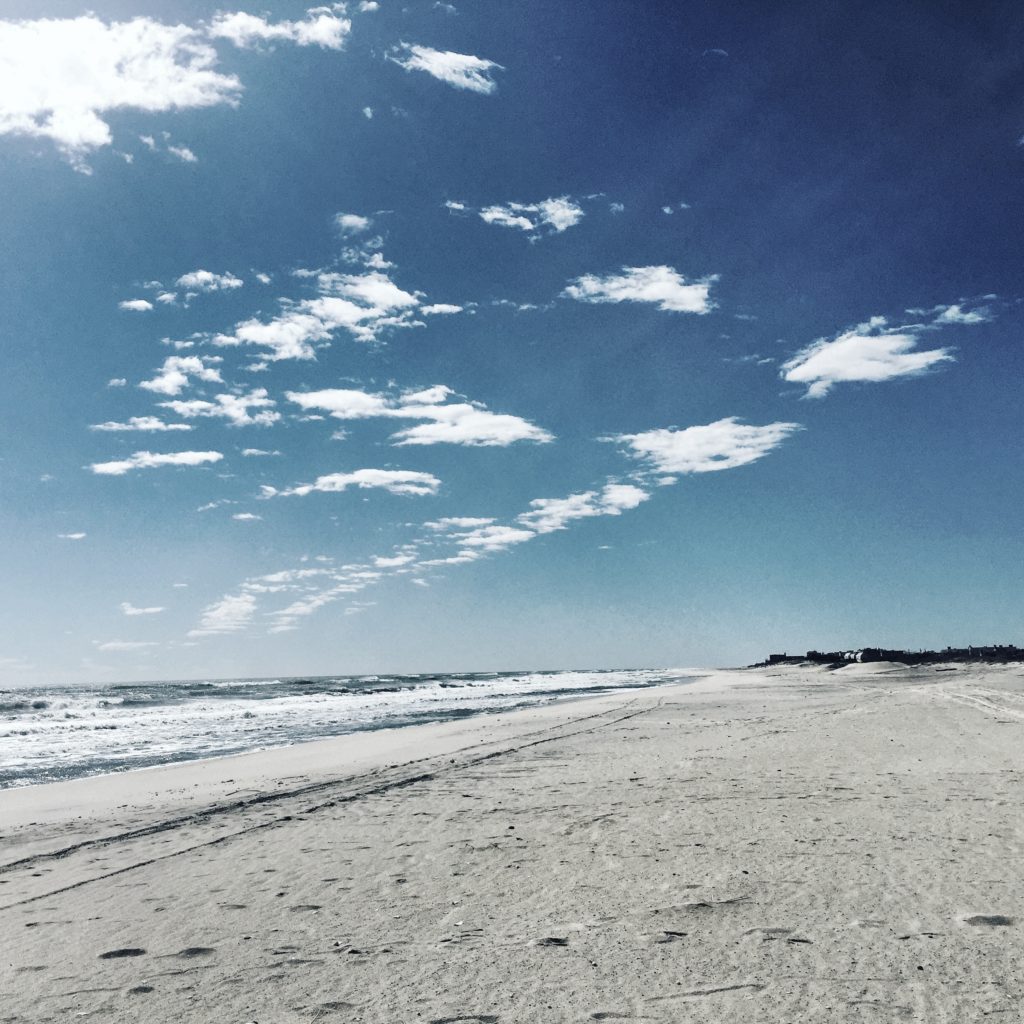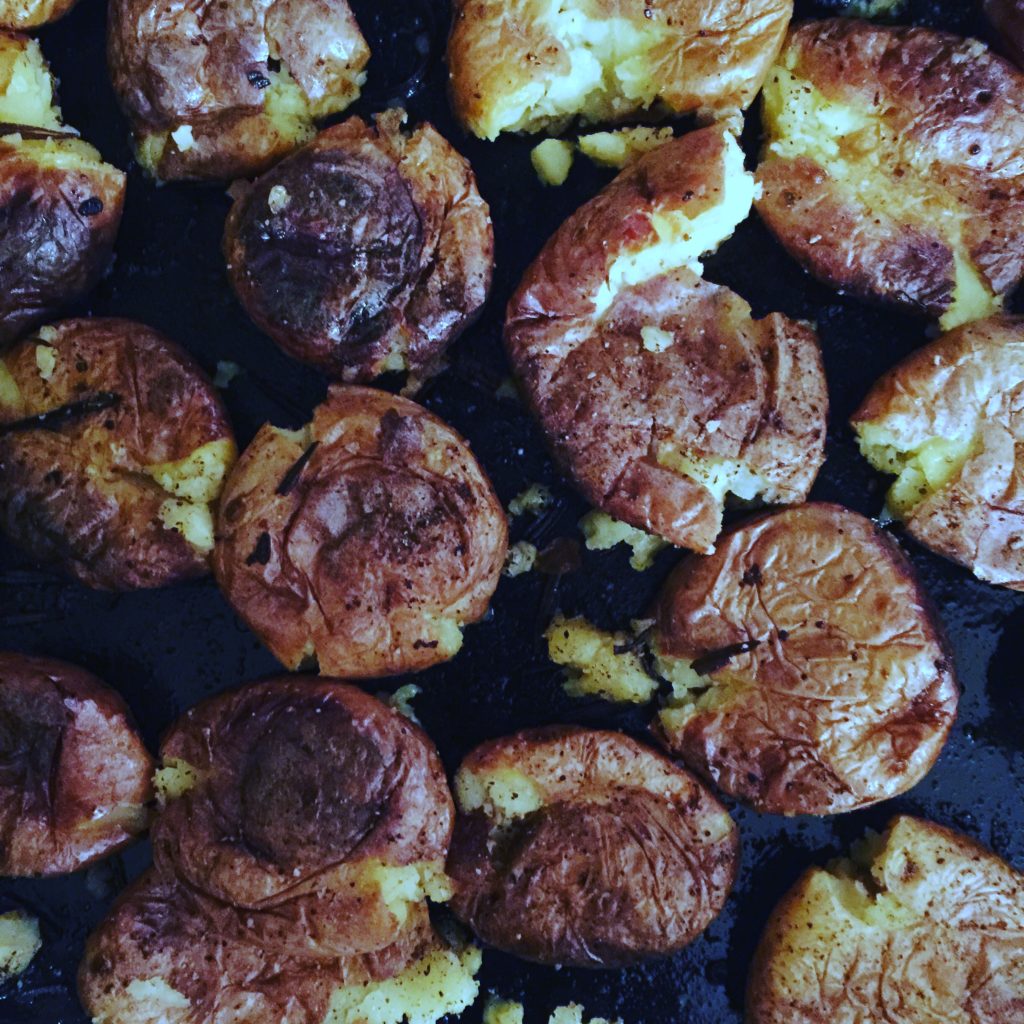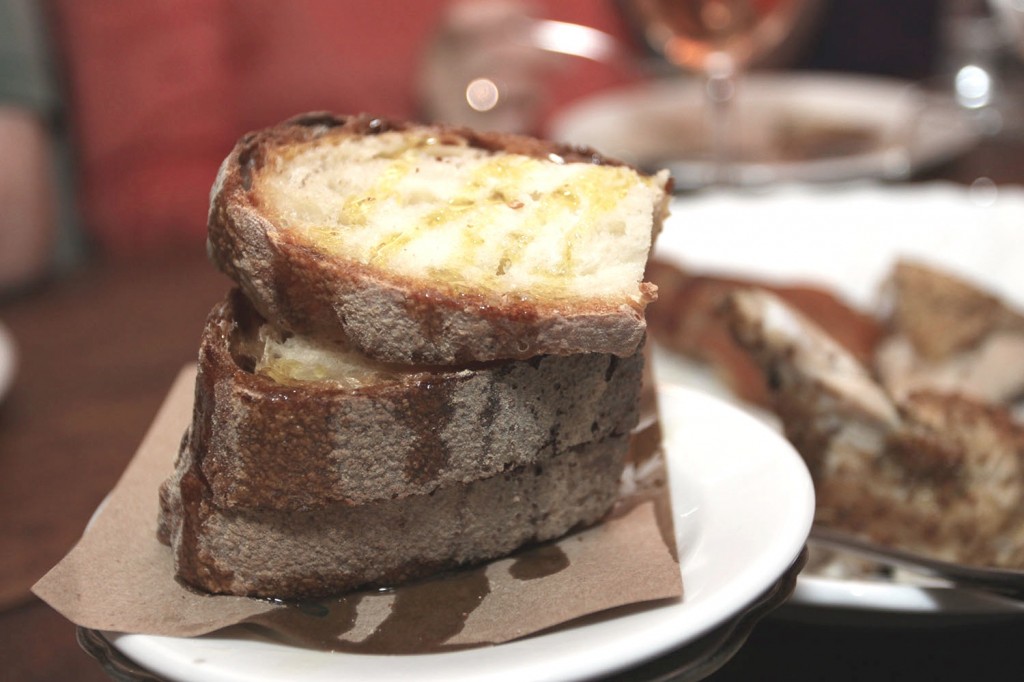A few weeks ago, I attended a writer’s retreat in Bridgehampton led by my friend and teacher extraordinaire, Dani Shapiro, whose new (remarkable) book, Hourglass, is about to be released tomorrow. We were a small group of women writers at the beautiful Topping Rose House; the workshop was an immersive, intensive experience capped off each day by Nancy Alder’s great restorative yoga, which was held in a small barn on the property. The cool, calming, monochromatic accommodations were luxurious in their simplicity; they let the mind rest at the end of each day. The surroundings, Dani’s teaching, the yoga, the sea air in early spring — they all conspired to quiet my brain, making the place ideal for the generative writing experience it was.
After four months living in a state of high anxiety, the few days at the workshop affected me in the same way that Marie Kondo’s life organization book did; I could finally focus. I could see the promise of the serene on the horizon of my frenetic, hysterical life. As a rule, I believe that things would be better if I wrote more, owned less, ate less, drank less, weighed less, had fewer chins, and lived a hygge-ish life in reassuring, subtle shades of gray and white. I arrived at the workshop with the plan to use it as a creative reset after the last few very trying months when everything — my work, my home, but most of all, self-care — has gone by the wayside. The night after our first group dinner boded well: without the stimulation of the brash and loud, I fell asleep in my soaking tub while reading the new Joan Didion.
Jean-Georges Vongerichten is responsible for the food at The Topping Rose House, and it is stellar. The restaurant staff turns themselves inside out to make sure that every diner with every permutation of dietary restriction is accommodated, and so, on the first morning of my stay, when I ordered gluten free toast (from the menu) with my eggs and house-made spicy maple-chile sausage and my server asked if I had a gluten allergy — not a sensitivity, but an allergy, which I took to mean like the one my friend in LA has; she has to give herself a shot of adrenalin to keep from going into anaphylactic shock if she accidentally ingests a breadcrumb — I, with self-care in mind, said Yes. Because I’ve learned that gluten, in many cases — not all, but many — can make me unwell, and I didn’t want to run the risk of eating something that was going to make me ill to any degree. My truthful answer to the server’s question — that I have a sensitivity and a thyroid condition worsened by gluten, but not a potentially fatal allergy — would, I decided, possibly result in my situation being taken less seriously. So I answered the way I did even though a sensitivity is not the same as an allergy, and feeling drunk and drugged and euphemistically undone is just not the same as dropping dead.
My breakfast arrived along with everyone else’s; we were all gabbing and drinking our very dark coffee and eating our very crispy smashed potatoes sprinkled with flakey sea salt along with our local eggs. Everyone had ordered simply, and without any fuss or special requirements. I spread sweet butter on the slice of pale beige gluten free toast that came with my dish and it was fine. It wasn’t stretchy and pliable because it couldn’t be. Being gluten free, it was not the same as the other bread that had arrived for my friends — the bread I secretly lusted after in my heart — and that I couldn’t take even a teeny bite of because I had just announced to the entire universe that I am unlike everyone else. I am different. And this made me feel very badly, and covetous, and a little enraged. And when I get enraged, I tend to take my fury out on one person: Myself. And I engage in activities that might be considered the complete opposite of self-care.
That night at dinner, more baskets of warm bread arrived on the table. One of my friends ordered crispy calamari as an appetizer, and like a misbehaving child, so did I. Because I wanted the crunch, the crumble, the salt, the bite. I wanted the batter without the squid. I didn’t want to think about what I was eating, and instead, to just enjoy it like everyone else. I didn’t ask the server if it was dredged in corn meal (gluten free) or einkorn flour (not gluten free but tolerated by many gluten sensitive people) or gluten free flour (not likely) or locally-milled flour (likely) in order to gauge exactly how unwell I might be at the end of the night. I said fuck it, and just ate it, and I followed it up with a piece of warm bread, which I blithely dunked into the (flour-thickened) jus on my pastured roast chicken.
I had just succumbed to what my novelist friend Jane Green calls a case of the fuck-its.
Fuck you, gluten, I thought. I’ll show you.
My workshop-mates were lovely and said nothing. If it had been me on the other side of the table, I would have tried to keep my heart open in an accepting and compassionate manner. A few years ago, I would have thought What an asshole. But that’s the old, judgy me speaking.
For a few minutes after the calamari, I was sated, happy, drinking a massive glass of Barbaresco and feeling completely normal and carefree. I had thrown caution to the wind without fear or concern about anything: not the fried calamari, not the bread, not the jus on my chicken, not the goblets of wine I kept ordering even though I’d promised myself I’d only have two because my shut-off switch sometimes gets stuck in the ON position.
When dessert arrived, a wave of self-loathing swept over me like the ocean at high tide: when the chocolate cake I ordered was set down in front of me as everyone else ate their sorbet, my ears turned red with hot embarrassment. What I had done was inexplicable, and had I been in unkind company, I would have been (rightfully) reamed for my behavior, and obvious lack of credibility. I felt morally bankrupt, and like everyone I’ve always complained about who claims to be gluten free and then — like the pleasure-hating Alfred Molina character in Chocolat who is found passed out in the front window of Juliet Binoche’s shop, his face smeared with ganache — takes themselves out to lunch in a different town and secretly sucks down a bowl of hand-twisted garganelle.
Which is what I ate the next night.
Everyone else had the salmon and vegetables.
I just got it for the rustic meatballs, I explained. They were spectacular.
So was the pasta. Everyone had a bite. We all enjoyed it.
The next morning, I woke up in my hygge sea of soft grays and whites with a raging migraine so bad that I thought my eyes were bleeding. At breakfast, my new friends were going to have to listen to me guiltily drone on about my suspect behavior the night before, and the fact that because I’m working on some serious life issues at the moment, I had gone on a self-destructive bender and ordered the most glutinous thing on the menu and ate it with abandon.
I’m sure it was just the wine, I said to one of my new friends, as she handed over an Alleve before the start of that morning’s session.
Of course, she agreed.
A few days after I got home, I came down with a sinus infection so hideous that it required two antibiotics and a steroidal puffer, much time spent in bed, and four boxes of tissues. I’m not positive that one thing had to do with the other; I couldn’t help but think it. There are articles about this kind of thing, which I will not post here.
I had a lot of time to think about what I had done. What is it that compels us to act this way — to say one thing and do another; to take a firm and public stand that impacts others (because foisting one’s dietary needs on professional kitchens does impact others, as it does when your friends know you as a gluten-avoider and go to the trouble of filling their pantries with gluten free crackers should you happen to drop by) and then throw it in their face; to announce at the top of your lungs the dietary restriction that makes you feel good and healthy and is the very embodiment of the self-care that you deserve, and then to do the opposite. To say I can be just like everyone else. I can handle it. Just watch me.
What compels us to not act in our own best interests just because we want something we’re not supposed to have? (Fill in the blank here. I’ll help: the non-gluten free bread; the secret box of chocolate; the fourth glass of wine; the eighth tube of lipstick; the entire sleeve of Fig Newtons that my father used to binge on in the closet when he was furious with my mother, which was always). Because, in our world of instant gratification coupled with the fact of too much of everything, we want what we want when we want it.
But to quote Augusten Burroughs, Just because you want something doesn’t mean you have to have it.
At its core, this is the addict’s lament, the same thing that pushes the drinker off the wagon, the pill-popper to say why not, the gambler to take the bus to Reno: Sure, it says, I can be just like everyone else. Only, I can’t. And that makes me feel very badly. And when I feel very badly, I do everything in my power to make myself feel even worse, as though I’m somehow punishing myself for the fault of my own sheer humanity.
I want what I want when I want it is more than a credibility issue: it results in a metaphysical tangle that would make Marie Kondo’s head explode. Whether you’re talking about too much stuff that you wanted when you wanted it — the five striped shirts instead of two; the twelve pair of flats instead of three; the purses; the fifteen tubs of powder like the ones hidden away in my mother’s vanity — or the inclination to gorge yourself on what you wanted even though you’ve told the entire world you can’t eat it but you do and you end up feeling like a you’ve been hit by a paving truck, the result is the same: a muddled brain, a monkey mind, an overabundance of psychic stuff that no amount of hygge will help you cope with.
It took me nearly three weeks to get over my sinus infection; I spent much of it in quiet reflection and review of the chapter I’d workshopped in Bridgehampton. The original version felt heavy, laden with excess, stuffed with dross. Susan made a pot of chicken soup for me and clarified it over and over, pouring it through a fine mesh sieve until all that was left was a crystalline broth. I drank it out of a hand-thrown mug while wrapped in our vintage 1940s Hudson Bay blanket, gazing out the window at the world, anxious to start over.











You go to the core of me. I could never forget Alfred Molina in that scene as well….I was so scared and repulsed for him and saw so much of myself.
Nail on the head – Why do we sabotage our hard won victories?
I had such an experience this past week: wine, a sandwich, dessert…and my hypocrisy of claiming to be “gluten free”…but never so concise or eloquent as you have expressed it for me to better understand, and empathize. Thank you for speaking up- and for so many of us.
Right to my heart. I’ve felt that abandon-against what I believe, what I should do-but do it anyway. People have judged me. Real or imagined. And i have suffered. Obviously, I’m not alone. Well done.
Ah, Elissa,sometimes I think thatt “start over” is our highest calling, the action that brings out our most honorable, most admirable aspects of our being, looking back over my life, it seems to me that I have had a lot of practice. And, it was often very difficult, requiring huge effort and belief that my hope for a happier, (more sustainable) life is possible, if I put my heart and soul into it and not give up. My persistence in doing this is probably what has saved me from despair. It is also possibly what I’m most proud of. I reassure myself, frequently, that living is a process. Wishing you all the best!
This is a wonderful piece that we all can relate to. From a neuroscience perspective, you are describing the struggle we have between our conscious and our noncionscious forces with the non conscious being so much stronger than we ever expect. Otherwise we would not have the plethora of social problems such as obesity, alcoholism, etc. So bottom line don’t beat yourself up. When I was a child in Chicago I was so taken with the snow that I just sat in a big drift and played with it chilled to the bone. I caught pneumonia and had to endure a horrible penicillin shot. But I knew then and I still think, it was worth it.
I definetely relate to the “monkey mind”Such beautiful writing,
Your writing goes straight to my core. Thank you so much for sharing.
Thank you–